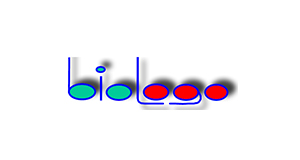Fibronectin, human
Fibronectin, human
SKU
BILFI24911
Packaging Unit
0,5 ml
Manufacturer
BioLogo
Availability:
loading...
Price is loading...
Background: This antibody may be used to identify fibronectin during wound healing, during tumour progression, and tumour invasion respectively. Fibronectins are glycoproteins, which occur as dimers of two 200 kDa subunits. They have binding domains for bacterial proteins, collagens, heparin-like molecules and fibrin. Cellular fibronectin is widely distributed in the stroma of malignant tumours. Human fibronectin 100%, human collagen type I, III, IV and VI <0.1% (RIA at 1:10000 dilution).
Positive Control: Human skin
Immunogen: Purified fibronectin from human plasma
Purification Method: Affinity purified antibody lyophilized from phosphate buffered solution (non-sterile). Contains antimycotic substance, but no BSA and sodium azide! Reconstitute with 0.5 ml of sterile water and store aliquots at -20°C. For further dilution use appropriate antibody diluent, e.g. Art. No. PU002 for IHC.
Concentration: app. 1 mg/ml
References: 1. Heinrich L., Tissot N., Hartmann D.J., Cohen R. (2010) Comparison of the results obtained by ELISA and surface plasmon resonance for the determination of antibody affinity. J. Immunol. Methods 352, 13-22. 2. Black A.F., Bouez C., Perrier E., Schlotmann K., Chapuis F., Damour O. (2005) Optimization and characterization of an Engineered human skin equivalent. Tissue Engineering 11, 723-733. 3. Guerret S., Govignon E., Hartmann D.J., Ronfard V. (2003) Long term remodeling of a bilayered living human skin equivalent (Apligraf®) grafted onto nude mice: immunolocalization of human cells and characterization of extracellular matrix. Wound Rep. Reg. 4. De Mello-Coelho V., Villa-Verde D.M.S., Dardenne M., Savino W. (1997) Pituitary hormones modulate cell-cell interactions between thymocytes and thymic epithelial cells. J. Neuroimmunol. 76, 39-49.
UniProt: P02751(FINC_HUMAN)
Caution: *These antibodies are intended for in vitro research use only. They must not be used for clinical diagnostics and not for in vivo experiments in humans or animals.
Positive Control: Human skin
Immunogen: Purified fibronectin from human plasma
Purification Method: Affinity purified antibody lyophilized from phosphate buffered solution (non-sterile). Contains antimycotic substance, but no BSA and sodium azide! Reconstitute with 0.5 ml of sterile water and store aliquots at -20°C. For further dilution use appropriate antibody diluent, e.g. Art. No. PU002 for IHC.
Concentration: app. 1 mg/ml
References: 1. Heinrich L., Tissot N., Hartmann D.J., Cohen R. (2010) Comparison of the results obtained by ELISA and surface plasmon resonance for the determination of antibody affinity. J. Immunol. Methods 352, 13-22. 2. Black A.F., Bouez C., Perrier E., Schlotmann K., Chapuis F., Damour O. (2005) Optimization and characterization of an Engineered human skin equivalent. Tissue Engineering 11, 723-733. 3. Guerret S., Govignon E., Hartmann D.J., Ronfard V. (2003) Long term remodeling of a bilayered living human skin equivalent (Apligraf®) grafted onto nude mice: immunolocalization of human cells and characterization of extracellular matrix. Wound Rep. Reg. 4. De Mello-Coelho V., Villa-Verde D.M.S., Dardenne M., Savino W. (1997) Pituitary hormones modulate cell-cell interactions between thymocytes and thymic epithelial cells. J. Neuroimmunol. 76, 39-49.
UniProt: P02751(FINC_HUMAN)
Caution: *These antibodies are intended for in vitro research use only. They must not be used for clinical diagnostics and not for in vivo experiments in humans or animals.
| SKU | BILFI24911 |
|---|---|
| Manufacturer | BioLogo |
| Manufacturer SKU | FI24911 |
| Package Unit | 0,5 ml |
| Quantity Unit | STK |
| Reactivity | Human |
| Clonality | Polyclonal |
| Application | Immunofluorescence, Immunohistochemistry (paraffin), ELISA, Radioimmunoassay (RIA) |
| Host | Rabbit |
| Product information (PDF) | Download |
| MSDS (PDF) | Download |

 Deutsch
Deutsch







